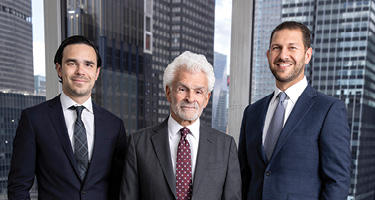A Chapter 11 Bankruptcy often begins with a debtor filing an array of “first day” motions—requests for relief that a debtor deems necessary upon the case’s commencement. First day motions ease the transition into bankruptcy and enable a debtor’s operations to continue uninterrupted.
Obtaining first day relief is important to establish credibility with the bankruptcy court; maintain the support of the debtor’s suppliers, customers and employees; and maximize the value of the bankruptcy estate at the outset of the case. Notwithstanding its importance, such relief can feel routine, leading some to suggest that bankruptcy courts simply rubber-stamp first day motions. Lately, however, courts have increasingly scrutinized first day relief, adjudging that relief with an eye toward fairness and due process while ensuring that bargains between a debtor and its creditors maximize the estate’s value.
This is not to suggest that courts have ignored these considerations in the past—yet as commercial parties’ sophistication continues to evolve, analyzing whether to grant such relief warrants a closer look at the specifics of first day requests. Below, we’ll examine trends concerning two particular first day motions—utility motions and critical vendor motions—and the impact they’ve had on Chapter 11 proceedings over the past year.
Utilities Motions
Utility services are necessary for debtors to continue operating during bankruptcy (a period also known as “post-petition”). With few exceptions, a debtor’s utility providers are generally not required to continue service upon commencement of the case; indeed, utilities will themselves often be creditors resulting from debt owed for unpaid services provided pre-bankruptcy. In these circumstances, a utility would have little incentive to continue its service unless it can be assured that the debtor will comply with its payment obligations post-petition.
A utilities motion is a debtor’s request to compel its providers to continue service post-petition, contingent on the debtor offering “adequate assurance” of payment. Obtaining approval of a utilities motion is a safeguard against the risk that utilities essential to a successful Chapter 11 reorganization do not alter or discontinue service. Utilities are authorized to do exactly that if the debtor fails to furnish adequate assurance of payment within 30 days after the bankruptcy is filed. So, what constitutes adequate assurance: a two-week utility cost deposit? a two-month deposit? The question is, paradoxically, both fact-intensive and subjective, as disputes often arise concerning the form or amount of such assurance, despite the Bankruptcy Code containing few adequate assurance examples. Although utility motions are rarely litigated and usually granted upon resolution of adequate assurance objections, the parties don’t always get to a resolution quickly.
Bankruptcy courts have expressed concern over utilities’ control over first day relief. As a result, recent trends include procedures whereby the debtor and utility negotiate and resolve adequate assurance objections without further court intervention. This preserves rights belonging to both the debtor and utility and gives the parties breathing room to settle disputes without being bound to time requirements under the Bankruptcy Code.
To successfully reorganize under Chapter 11, a debtor’s business must continue to operate."
For example, recent trends also consist of, in part, a utility’s authority to request a disbursement from the debtor’s utility account if an amount related to post-petition services is unpaid, even during the adequate assurance negotiation period. This ensures continuing utility service during a crucial stage of the case; offers the utility assurance of payment; and prevents the utility from exerting disproportionate control over the debtor’s operations (i.e., by altering, refusing or discontinuing service).
Critical Vendor Motions
To successfully reorganize under Chapter 11, a debtor’s business must continue to operate. Contributing to ongoing operations are entities referred to as “critical vendors”—typically suppliers that a debtor deems vital to its daily business. Critical vendor motions are requests by a debtor to pay pre-bankruptcy obligations owed to suppliers as an incentive toward continued business with the debtor on favorable terms.
Such relief can result in critical vendors “jumping the line” by receiving material recoveries during the bankruptcy on account of their pre-bankruptcy claims. Because the evidentiary basis supporting this relief can be scant, bankruptcy courts have recently moved away from the knee-jerk granting of these requests in toto without imposing appropriate restrictions, particularly if sufficient evidence supporting the request is lacking.
For example, recent critical vendor orders might condition a debtor’s authority to make payments on the vendor continuing to do business on existing or better trade terms than those that existed pre-bankruptcy and agreeing that receipt of payment followed by the vendor’s failure to adhere to the agreed-upon terms will constitute an unauthorized post-petition transfer subject to disgorgement.
Notwithstanding recent court developments, debtors’ flexibility to pay critical vendors has become increasingly limited. This is largely due to a debtor once having had unchecked discretion to make payments on account of pre-bankruptcy debt outside the normal priority scheme, and the concern that creditors receiving such payments are not truly “critical” to the reorganization. If an unsecured creditors committee (which represents the interests of all unsecured creditors) has been established, debtors are often instructed to provide the committee with notice of proposed vendor payments and allow the committee to halt the payment absent further order of the court. This check restricts a debtor’s autonomy, but such a restriction might be welcome, as the committee’s involvement in critical vendor approval adds credibility to the requested relief.
Debtors have also addressed a bankruptcy court’s concerns about whether vendors are truly critical by assessing:
• the general availability of goods or services provided by a vendor or supplier;
• whether a debtor’s current inventory levels or service coverage is sufficient to meet customer demands while an alternative vendor or service provider could be located or qualified;
• whether failure to pay all or part of a vendor’s claim could cause the vendor to refuse to provide inventory or critical services post-petition; and
• whether a debtor would be unable to obtain comparable goods or services from alternative sources cost-effectively within a reasonable time.
Conclusion
Bankruptcy courts’ recent enhanced scrutiny and debtor trends in response are significant not only to utility and critical vendor motion practice, but to Chapter 11 proceedings in their entirety. First day motions set the stage for a bankruptcy case—and thus a debtor’s approach to seeking such relief and a court’s consideration of the same go hand in hand. If first day relief is not granted, the prospect of a successful reorganization diminishes. And while courts’ greater scrutiny might bring challenges to debtors at the outset, debtors’ employment of new and creative relief trends might ultimately lead to a more structured and streamlined bankruptcy process.
Seth H. Lieberman, a partner and chair of Pryor Cashman’s Bankruptcy, Reorganization + Creditors’ Rights Group and co-chair of the Corporate Trust Practice, is an experienced restructuring attorney and litigator who represents clients ranging from indenture trustees and agents to distressed debt funds, trade creditors and landlords. Seth helps lead one of the most well-known and highly regarded default-side corporate trust practices, and he has an active creditor-side bankruptcy practice.
Sameer M. Alifarag is an associate and a member of Pryor Cashman’s Bankruptcy, Reorganization + Creditors’ Rights Group and the Corporate Trust practice. Sameer represents a diverse array of clients, including trustees, creditors, investors and secured and unsecured lenders in complex Chapter 11 reorganizations, out-of-court restructurings, assignments for the benefits of creditors and other distressed situations. He has particular experience in representing default-side corporate trust clients and sophisticated creditors.
































